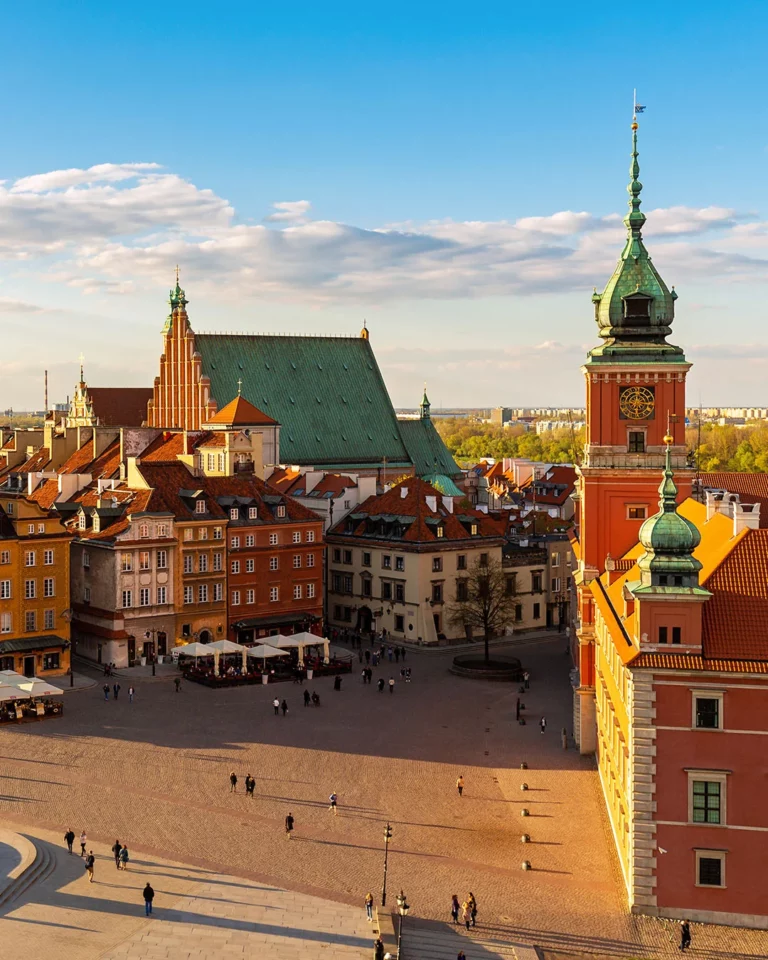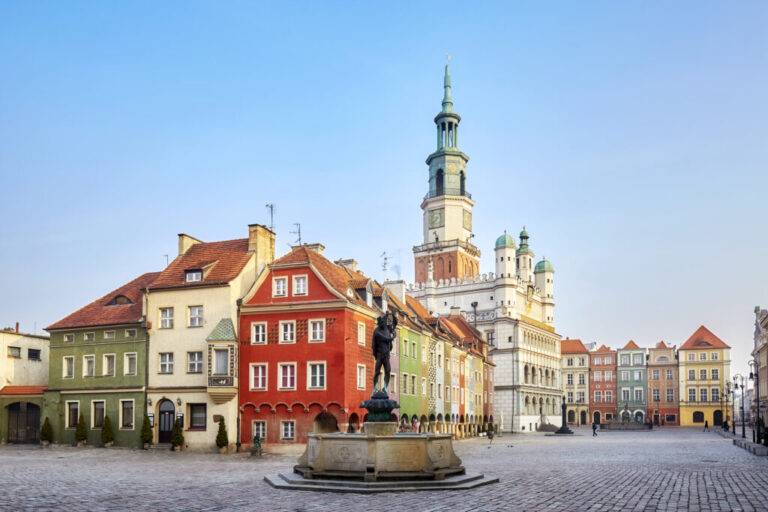POLAND PEO & EOR
Hire in Poland without
a local entity today
As a Global PEO & EOR service provider, we pride ourselves on our global reach, in-country knowledge, and ability to swiftly and efficiently mobilize workers around the world. Our robust PEO/EOR covers everything from global HR, payroll, compliance, in-country support, immigration, visas, and more.
Get started and hire in Poland today with Gibson Watts Global.
DID YOU KNOW
- Vodka, is the traditional drink of Poland, and is generally served at every celebratory event.
- Poland is home to a variety of different species including grey wolves, elk, brown bears, bison, deer, wildcats, and wild pigs.
- Polish nationals protested Soviet Rule in the 1980s and won, leading to the nation becoming the Republic of Poland in 1989.
Forget software,
this is expansion
with a human touch
Poland PEO Services
A resilient economic powerhouse in Central Europe
This economic powerhouse in Europe prides itself on its vast range of career opportunities, low living costs, historic beauty, and stunning scenery. With a central European location, Poland enjoys a combination of Western and Eastern European cultures, and it is an ever-growing destination of choice for foreign workers and investors.
Poland is notable for being the only European economy which continued to grow when the rest of the continent went into recession, during the 2008 global financial crash. This economic resilience, along with its wealth of opportunities, are just some of the reasons why so many global multinationals, including GSK, Volkswagen, RBS, and T-Mobile, have established major operations here.
Poland is one of the primary destinations of choice for graduates, and the country is popular for providing graduate opportunities in Banking, IT, Logistics, Telecommunications and Chemical Manufacturing. The tourism sector is also booming, with the country observing an increase of around 18 million tourist arrivals since 2006.
With a gross domestic product of $594bn, Poland boasts the 9th largest GDP in Europe.
Working in Poland
Employment Information
Poland’s working hours follow similar patterns to other European nations. An average working day should not exceed eight hours, and this is generally spread out to 40 hours throughout a 5-day working week. The most common working hours for employees are 8am to 4pm on weekdays and 8am to 2pm on Saturdays.
Employers should offer an hour unpaid lunch break during an employee’s shift, however it is generally uncommon for Polish workers to take lunch during the day.
Annual Leave / Public Holidays
Full-time workers in Poland are entitled to 20 days of paid annual leave (if an employee’s service is under 10 years), or 26 days of paid annual leave (if the length of service exceeds 10 years).
Employers in Poland should also provide 33 days of paid sick leave during a calendar year. Any sickness that exceeds this is then covered by the Social Security Bureau.
New mothers working in Poland are entitled to 20 weeks of paid maternity leave, with the option of 6 weeks being taken before the due date. Mothers must take a minimum of 14 week’s maternity leave however 6 weeks can be allocated to the father if desired.
Poland observes a variety of public holidays in which employees are not required to work, these include:
- New Year’s Day – Jan 1st
- Three Kings – Jan 6th
- Easter Sunday
- Easter Monday
- May Day – May 1st
- National Day – May 3rd
- Pentecost Sunday
- Corpus Christi
- Assumption of the Virgin Mary & Polish Army Day – August 15th
- All Saint’s Day – November 1st
- National Independence Day – November 11th
- Christmas Day – December 25th
- St Stephen’s Day – December 26th
Visa Requirements
Citizens within the European Union can immediately relocate to Poland and begin searching for opportunities without a work permit. Non-EU citizens will need to receive a work permit to start working in Poland, the usual route for this is through an employment offer from a Polish employer.
For businesses, establishing a presence in the Polish market can be facilitated with the use of a Poland PEO provider like Gibson Watts Global. We assist businesses who are looking to set up a temporary or permanent entity in the country, including relocating staff and hiring Polish talent.
Cultural Information
The official language of Poland is Polish, and despite English being common across the country, individuals who are relocating to Poland should attempt to obtain a basic grasp of the Polish language.
Family values and work-life balance are extremely important parts of Polish culture. Weekends are usually reserved for family life and spending quality time with loved ones.
Poland’s primary religion is Roman Catholic, and around 90% of people identify with this religious affiliation.
Polish people are known for their friendly and welcoming manner, and foreigners who are visiting Poland will notice this hospitality immediately.




